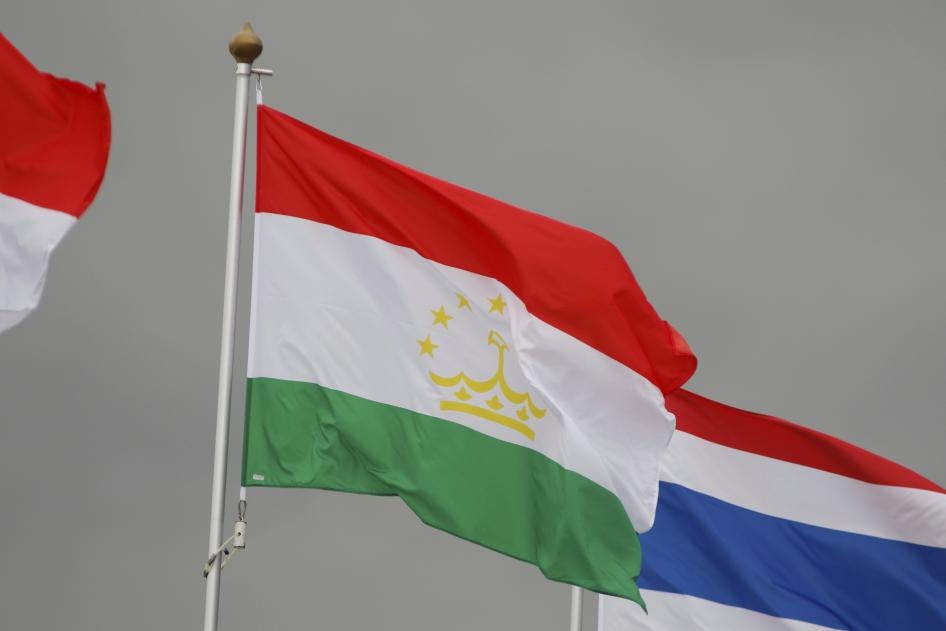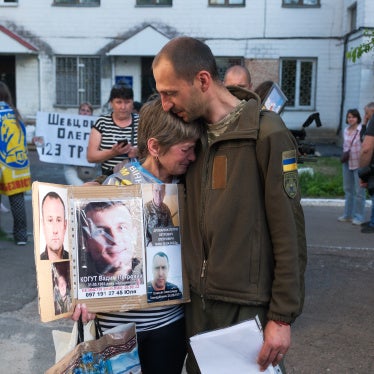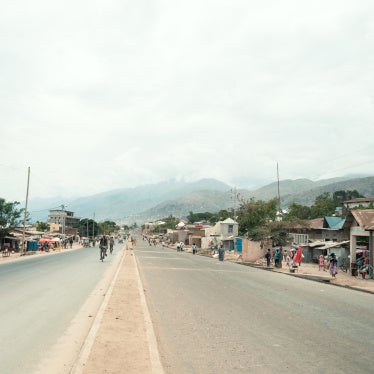(Berlin, December 13, 2022) – Six civil society activists from the Gorno-Badakshan Autonomous Region in Tajikistan, detained in connection with protests in May 2022, have received lengthy prison terms after closed, unfair trials, Human Rights Watch said today.
Among them is Ulfatkhonim Mamadshoeva, a 65-year-old independent journalist and civil rights activist, who was sentenced to 21 years in prison on charges of conspiring against the state and organizing the protests. Her former husband, Kholbash Kholbashov, was sentenced to life in prison in September.
“The trials of the Gorno-Badakshan activists were held behind closed doors without access to lawyers or the evidence against them, in violation of fundamental fair trial standards,” said Syinat Sultanalieva, Central Asia researcher at Human Rights Watch. “The Tajikistan authorities should immediately release these six activists, along with the other activists who have been locked up for legitimate exercise of their rights and drop all charges against them.”
The other five activists who were convicted in trials on December 9 and 10 are members of Commission 44, an independent group established in 2021 to investigate the death of Gulbiddin Ziyobekov, a resident of the region killed by police in November 2021, whose death sparked an initial round of protests in Khorog, the regional capital.
The convicted activists are Faromuz Irgashov, a lawyer who headed Commission 44, sentenced to 30 years; Muzaffar Muborakshoev, a civil rights activist, 29 years; Khursand Mamadshoev, brother of Ulfatkhonim Mamadshoeva, 18 years; Manuchekhr Kholiknazarov, head of the Association of Lawyers in Pamir, 15 years; and Khushruz Djumaev, a civil rights activist and blogger known by the pseudonym Khushom Gulyam, 8 years. All were charged with “participation in a criminal association” under article 187 of the Criminal Code of Tajikistan. In June, two other members of the group were also sentenced to 18 years each.
The persecution of activists, journalists, and lawyers from the autonomous region has been ongoing since May, following a government crackdown on peaceful protests by the local population, the Pamiri, a distinct ethnic and religious minority, whom the government has long discriminated against. The authorities have arrested and detained more than 200 people on charges related to the protests and ensuing clashes. According to the United Nations special rapporteur on minority issues, as many as 40 people may have been killed in a special “anti-terrorism operation” that the Tajik authorities conducted in the region to quash the protests.
There have been reports of lack of access to independent legal representation, as the autonomous region has only seven lawyers officially registered as members of the region’s bar association, while lawyers from other regions of the country were warned against taking up these cases. There is concern that torture may have been used in seeking evidence, especially in the cases of Mamadshoeva and Kholbashov, who both appeared on May 24 in footage shared by state-backed media in which they appear to admit to organizing the protests. The interviews were clearly recorded after their detention on May 18.
These sentences come on the heels of the annual Human Rights Dialogue between the European Union and Tajikistan, during which the EU expressed “serious concerns with the human rights situation’’ in the region and called for an independent investigation into the events there in November 2021 and May 2022. The EU also expressed concerns about the working environment for journalists, human rights defenders, and civil society in the country.
This echoes the July 7 European Parliament resolution calling on the Tajik authorities to investigate the violent clashes in the region and to immediately release arbitrarily detained human rights defenders, journalists, and civil society activists.
On December 9, the UN special rapporteur on the situation of human rights defenders, Mary Lawlor, in a news conference concluding her two-week visit to Tajikistan, expressed her deep concern at the “apparent clampdown on dissenting voices” and the “crackdown on independent journalists and human rights defenders.” Lawlor reminded the Tajik authorities of the “internationally binding human rights obligations it had voluntarily agreed to undertake” and urged them to release “all human rights defenders currently facing criminal proceedings or convictions.”
“The Tajik authorities should abide by their international human rights obligations and stop this unprecedented year-long attack against its own citizens in the Gorno-Badakshan autonomous region,” Sultanalieva said. “Tajikistan’s international partners should make the release of the Pamiri civil rights activists their priority in their cooperation with the country.”









